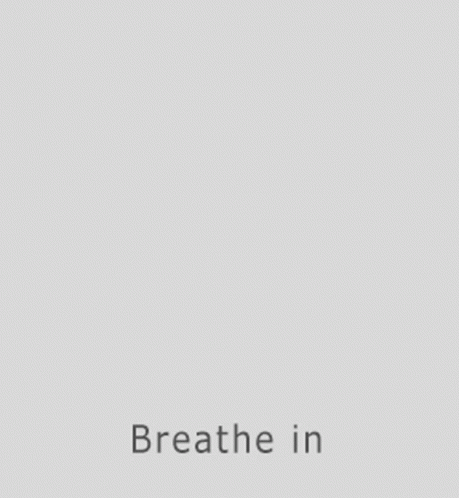Listen to Let the Verse Flow on Your Podcast Player of Choice
This is a transcript from episode #36 of the Let the Verse Flow Podcast.
As you know, at the end of every podcast episode, I provide journal prompts related to the topic I’ve discussed. My hope is that my podcast stories, poetry and music have inspired you to reflect on these topics in your own life – to extend these ideas into practical insights about what you think and how you feel about what I’ve discussed. I often remind you that you can write in response to these questions or think about them mindfully, using as little as 15 minutes. Today, I’m going to break down that practical advice into an example, drawn from my life, of how I use a certain type of writing, called stream of consciousness, to reduce overthinking and offer myself a mental break from the worry, rumination, and angst that I may be struggling with. This type of journal writing can be done in as little as 10 minutes, but I think about 15 is optimal. It can reset your day and offer a mental break from your overthinking.
When Life Gets Crazy, My Mind Goes Into Overdrive
A while back I received an upsetting email that involved my mom’s finances. As it is, at the end of each month, I feel the stress start to build as I think about paying all the healthcare bills associated with my mom’s care at the assisted living facility where she lives. I have a sound financial plan, but each month the large bills cause alarm and can set off overthinking and worry. Many of us face financial worries when it comes to caring for our loved ones. The high cost of healthcare is staggering.
On this particular day, I got an email saying there would be an increase in the cost of her care, and it wasn’t a small sum. It was huge and not the type of money I had lying around the house. One moment I was in the middle of enjoying a fun shopping day with my daughter who was visiting from college, and the next I felt my heart rate increase and my chest pound as I contemplated what this would mean.
A flood of questions came to my mind:
How would I pay for this?
What would this mean for my savings, paying my daughter’s tuition, and retirement?
Would these fees continue to go up every 6 months?
Would I have to move her to another facility, or care for her at home again?
Should I reach out to an elder lawyer again about my mother’s finances and options?
I went from strolling and shopping with my daughter to a fight-or-flight state that had me panicked.
I also had thoughts about how out of line this panic was compared with the weeks before when I’d been working so hard to cultivate acceptance. Was my meditation work to find a more calm acceptance of challenges falling by the waist side? Here I was talking on this podcast about finding ways to accept uncomfortable feelings and I felt like my heart was in my throat. I was unable to focus on our shopping until I figured out at least some semblance of a plan (planning is my go-to default mode when I feel stressed).
I shelved those questions, but they stayed in the back of my mind for some days while I dealt with these issues, and I did deal with them. I took action and largely resolved the issue, in part through the generosity of the facility (no small feat and a reason to be grateful for sure).
Practical (and Effective) Tips to Reduce Overthinking & Worry
But, these rumblings and problems can shake my world, and since I’m working so hard to find more equilibrium and mindful peace through my meditation and journaling practices, I started thinking about what practical tips I could offer you when you face these problems. What else, besides taking action and advocating for my mom’s needs, had I taken or could I take to quell this overthinking? The answer was a whole host of tools – meditation, mindful walking, exercise, and writing.
I’ve come up with a 15-minute journaling process that you can use to halt overthinking for a while; you do some automatic writing and release some of the angst you may be feeling over a challenge or personal struggle. I’ll guide you through this stream-of-consciousness journaling for 15 minutes to reduce rumination and overthinking. I’d like you to listen to this meditative guided instruction, and then put this method into practice with a journaling session. Feel the freedom of diving into your subconscious mind, without judgment and with a presence of mind that feels restful and at peace. Let’s take a break from our overthinking and worry.
Stream-of-Consciousness Journal Practice (Guided Session)
First, I want to you find a comfortable space. After a period of angst and rumination, your mind and body need to settle down, so you are looking for a restful and restorative space. Perhaps a quiet corner of a living room, a rocking chair on your balcony or porch, or a table at your local coffee shop. Somewhere where you won’t be bothered and you can unplug from your phone and your to-do list. Put that aside and come into that inviting, tranquil space.
You can find 15 minutes for yourself, so let’s make the most of it with a beautiful, comforting space. Get your journal, favorite pen, or computer, or just get a cup of coffee if you’ve decided to reflect on your thinking rather than write it out. I encourage you to write it out though since it will give you a valuable record to reflect on, and we will touch on how to reflect on your writing at the end.

Once you are in your space, let’s take a few deep breaths. I think of these as cleansing breaths, as they make me think about starting with a fresh, clean slant. I leave my worries behind and devote some time to transitioning from my ruminating, overthinking mind to one that is more focused on this physical task of breathing, breathing that anchors your mindfulness and writing, without too much chatter or participation from the conscious mind. Let’s take a three-breath journey (as meditation teacher Gil Fronsdal calls it). I like to inhale air down into the belly and feel it extend outward, but you might also feel it at the nose or the chest. It’s hard to do this wrong, so turn judgment off and get in touch with your unique breath. It’s been with you since birth so you and your body know the way forward.
Take in that slightly longer inhalation than you normally do (but don’t exaggerate it) and then let it all out, perhaps with a slightly longer exhalation. It’s on the exhalation that I feel the release and the relaxation start to kick in. Let’s do three of those.
Now, I want to discuss this technique of stream-of-consciousness writing; it’s also been called automatic writing. It’s your subconscious communicating with you, and it’s really very extraordinary. All the thoughts, emotions and stories that you’ve told yourself are tucked away into this subconscious mind of yours and now we are opening up the hidden contents of the mind and sharing its thoughts with ourselves. No one will read what you write, and I find that very comforting.
This is completely private and it’s an interior form of communication that helps make us feel complete and whole and limitless. You are going to write for 15 minutes. Just write. You aren’t going to ask yourself questions (unless questions spill out of your mind onto the page – then you’ll just document them). You aren’t going to give yourself a goal or a structure. You’ve left the world of rules and shoulds and must-dos, and are now in the land of possibility. What you are going to do, is write whatever comes to mind. This is automatic writing where you gain a glimpse into your subconscious. What has it been thinking the last couple of days?
Your writing may start stiff and full of extreme thoughts and emotions. It may sound like you are ruminating at first, but a new wave of thoughts and words will come. Let those flow out of you and onto the page. The page can take it, and you need to release these thoughts perhaps. Let those ideas and words just come and be present with them. They can’t hurt you because they are simply words right now. You don’t have to take any action or do anything special about them. Ignore spelling and grammar and just words come out of you.

I want you to be in a state of flow during this 15-minute writing session. Don’t stop to categorize thoughts or ideas, don’t worry if you veer off topic or ramble on about something. Your subconscious is talking and all you need to do now is be a conduit for it and let words flow from you. You may lose track of time while you do this. After letting your conscious mind run the show for so long, it’s nice to let it take a back seat, to shut down the overthinking and let new words and ideas flow.
While in this state of flow, you may have lost track of time or felt intrigue and interest well up as you discovered what your interior thoughts wanted to say. This might be news to you, and it should certainly feel more expansive and freeing than the ongoing narratives that have been playing over and over again like old tapes. For 15 minutes, you’ve moved through those ruminating thoughts to a new place, one where sometimes exciting (or at least novel thoughts) rise up and make themselves known.
Reflect on Your Writing
After the 15 minutes are up, you can look over the writing if you like. Have a little review. Does it read like a sea of gibberish without a common thread or sense of narrative to be found? Perhaps you needed to speak to yourself in a foreign tongue, to give yourself a playful break from the rigidity of reality and structured, practical thought. Your gibberish is like child’s play, enjoy that revelation.
Did your writing reveal new insights, questions, aha moments, or new pathways that you hadn’t considered? You can choose to pursue those or not. Perhaps more will come in your next stream-of-consciousness journal session.
Did you doodle or write repetitive sentences? Perhaps there are symbols and patterns to detect in those sections. We are more creative than we give ourselves credit for. Maybe what you wrote means something and maybe it doesn’t, but you spent 15 minutes in mindful flow and away from the worries of the day. Relish that time away, and hopefully enjoy a feeling of rejuvenation.
As you wrap up the review of your writing and get in touch with the emotions or thoughts that were present, realize how amazing your mind is. The things you come with, the way you problem solve without even knowing it, and the unique combinations of thoughts, pictures, symbols, and ideas that come from your mind are miraculous.
I always feel a profound gratitude that I can write whenever I want to and find out how my mind is doing. Let’s take a moment to express gratitude to ourselves for ourselves. We are incredible beings and we are so much more than our everyday challenges, worries, to-do lists, and escapades show us. Let us be thankful for this small insight into the portal of what’s beyond our everyday thoughts. We can return to this place whenever we like through this journal practice.
As we learn how to weather each new challenge that comes into our lives, we can rely on tools like our journal practice to help us find a bit of comfort and relief from the storm clouds. Our minds are always working on our behalf and we can let creative flow be the portal to exploring the protection and security that it brings. May you find that these 15 minutes bring you closer to a relaxed calm inner state, one that has developed new strength to meet life’s challenges and can transition to the next step in your life’s journey.
*Want more journal resources? Find them here.
Podcast Music: My thanks to all the musicians who make incredible music and have the courage to put it out into the world. All music for my podcast is sourced and licensed for use via Soundstripe.
Songs in this podcast episode: Weary Traveler by Falls; Slide by GEMM; Soft Images by Outside The Sky
Resources:
Guided Meditation: Journey of Three Breaths (Gil Fronsdal)
Journaling 101: An Inspirational Guide to Start (or Revive) a Practice
The Benefits of Journaling for Mental Health & Wellness
30-Day Journal Challenge (Writing Prompts to Get Started)
Related Episodes:
Overcoming Overthinking and Worry with Journal Writing & Meditation (episode 23)
Affirmation Meditation: Overcome Overthinking and Worry (episode 24)
LTVF Season Two Music Playlist: Check out the songs that inspire me, and connect with artists from many genres who add to our collective, human soundtrack.
Listen to Let the Verse Flow on Your Podcast Player of Choice
Check out the resources on this website (and subscribe) to get podcast episodes, poems, articles, music playlists, and journal prompts delivered to your inbox.
Then, connect with me on Instagram. Let me know you hear me out there!
Journaling Resources

Sign up for the Let the Verse Flow Newsletter and get access to all my articles, including this free 30-Day Journal challenge (with starter writing prompts).

Sign up for the Let the Verse Flow Newsletter and get access to all my articles, including this free journaling guide.
Let the Verse Flow is a community-supported, independent publication launched in June 2023 by Jill Hodge. If you subscribe today, you'll get full access to the website and newsletters. Members are vital to building a rich community of diverse voices. Join us by subscribing today; consider a paid subscription to support the community if possible. Thank you!



